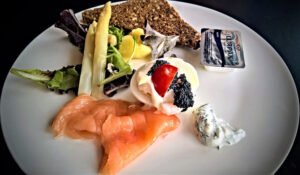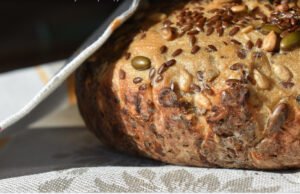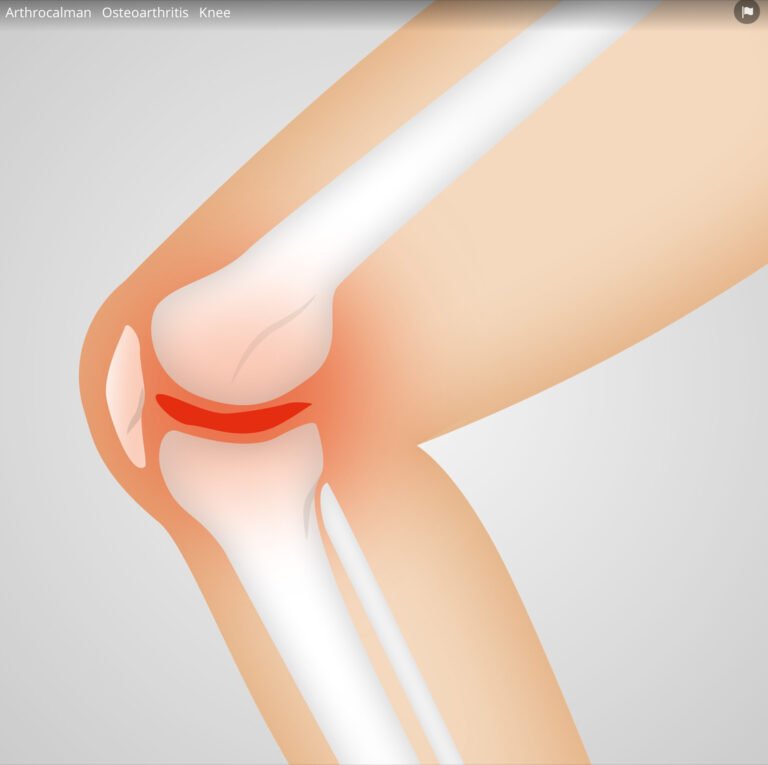The zinc function in the human body

Zinc gets special attention from people and healthcare professionals especially after recognizing its role in gene expression among other roles. Mainly, zinc is associated with nucleic acids such as DNA and proteins.
it is one of the most important trace-mineral for body functions. zinc acts as a coenzyme (cofactor or helper) for almost 200 different enzymes involved in almost every general function in the human body including protein synthesis and some types of hormone function (Medeiros & Wildman).
Definitions (Medeiros & Wildman):
Minor minerals (trace or ultra-trace minerals) are those minerals that are needed in smaller amounts by the body, typically less than 100 milligrams per day. Some examples of minor minerals include iron, zinc, copper, iodine, and selenium.
Enzymes are proteins their main job is to speed up a chemical reaction in the body. Each chemical reaction such as digestion and absorption has specific proteins or proteins (enzymes). Enzymes are not affected during the chemical reactions, are not destroyed, and it’s used over and over.
Functions and vital roles of zinc in the body:
Zinc exists in every cell in the human body. A higher concentration of zinc is found in the skeletal muscles, bones, skin, and kidneys. Zinc functions as a cofactor or coenzyme in almost 200 enzymes involved in hormone function protein synthesis.
In summary:
- Zinc has a major role in DNA creation, healing damaged tissue, and building proteins.
- Zinc involves in some types of hormone functions.
- Zinc supports the immune system to protect the body and keep it healthy.
- Zinc is required during pregnancy as well as childhood growth, and rapid adolescence growth, because, it helps the cells to grow and multiply.
- Zinc also plays a role in the taste and smell sense
- Zinc is present in almost every cell in the body but mainly concentrates highly in the skeletal muscles, and bone
- Zinc also concentrates in the skin, liver, kidneys, brain, and heart
- Zinc is involved in enzymes affecting metabolism (digestion), PH level, bone mineralization, blood manufacturing, and antioxidation
(Zinc 2022) and (Medeiros & Wildman)

(Betts et al., 2013)
Children, the elderly, pregnancy is among the people who need zinc the most and are affected drastically by zinc deficiency.
Zinc food source
A good source of protein is also a good source of zinc, because, zinc role in the body is associated with nucleic acid (such as DNA) and protein. Animal meat such as poultry, red meat, eggs, and seafood are the richest in bio zinc available for the body to absorb rapidly.
Plants food such as legumes and whole grains are also rich in zinc, but, they are not absorbed fully, or their zinc contents lessen by food processing. In a plant’s source of zinc, there are a couple of factors affecting the number of minerals in such food and the zinc absorption status.
For example:
- The whole cereal grains lose most of their minerals because it goes under processing or milling
- Plant food sources mostly contain “anti-nutrients” which means, it blocks the body from fully absorbing the nutrients in food.
- Fruits are counted as a poor source of zinc
Definitions (Zinc 2022):
“Anti-nutrients” are chemicals or nutrients usually found in plant food and some animal food. Antinutrients as the name indicate, lack or block the absorption of some nutrients in the body.
Table 1: The animal sources and plants sources of zinc
| Animals Source | Plants Source |
|---|---|
| Animals Source | Legumes |
| Animals organs | Whole grains |
| Poultry | Nuts |
| Eggs | Seed |
| Fish: herring | Fortified cereals |
| Shellfish: oyster, crab, lobster, clams | |
Factors interfere with zinc absorption
Zinc is associated with protein synthesis and nucleic acid such as DNA and existed in every cell in the body. Zinc bind to protein and is liberated in the small intestine by secretions from the pancreas and gallbladder (digestive secretions or juices), therefore, any health problem in the digestive system decreases zinc absorption.
Zinc absorption also decreases when high dietary fibers intake increases. Zinc also competes with iron for absorption because the ratio of iron to zinc in absorption is 2:1. Thus, excessive iron in one meal can lower the zinc intake. In addition, anti-nutrients in plant foods can lack zinc absorption as well. The term “anti-nutrients” refer to some chemicals found naturally in the food such as phytates and oxalates interfere with the body’s absorption of nutrients in food. Such chemicals (anti-nutrients) are presented in plants naturally to protect the plants from bacteria.
In conclusion, in order to increase the absorption of zinc, a few diet rules should be followed. First, the digestive system should stay healthy and health problems associated with it should be treated Second, minimize the intake of excessive dietary fiber and iron in the same meal with food containing zinc.
Finally, to avoid anti-nutrients interference with zinc absorption in plant-source foods such as legumes and grain, the food should be soaked for at least one hour before cooking, or boiled lightly and discard the boiling water before cooking. Other
Examples of anti-nutrients are:
- Phytates (found in grains and legumes)
- Oxalates (oxalic acid found in teas, chocolate, berries, and spinach)
- Lectins
- phenolic compounds (tannins)
- Phytoestrogens
- Polyphenols (such as lignans in teas)
Zinc supplements
are available in form of tablets, lozenges, and nasal and throat sprays. In the 1990s and thereafter, zinc lozenges became so popular in treating the common cold (Zinc 2022).
This zinc remedy for cold needs to dissolve slowly in the patient’s mouth and throat to fight the virus and reduce inflammation. The cold lozenges supplement can cause some side effects such as nausea and metallic flavor in the mouth. Even though this lozenge supplement is still popular, its effectiveness was not really strongly confirmed.
The nasal and throat spray is causing loss of smell and not too many people prefer that. Also, there is an ointment with zinc oxide to treat wounds and for skin treatment against sunburn. Such ointments are still very popular to use until now to also treat skin inflammation in case of eczema, diaper rash, or bed sore. Fortunately, there are no side effects reported so far from using the ointments.
Even though people with zinc deficiency need help to get zinc from other sources such as supplements, supplements should be taken with caution. It is easy for the person to get toxic from supplements rather than food. It is necessary to note that, excess zinc intake can interfere with the absorption of copper and iron, Nausea, and vomiting.
Definition, Merriam webster dictionary:
Lozenges are “small usually sweetened and flavored medicated material that is designed to be held in the mouth for slow dissolution”
Zinc toxicity



Toxicity comes always from supplements and there are no medical reports on toxicity from food. Toxicity signs and symptoms are:
- Diarrhea
- Nausea
- Vomiting
- Poor appetite
- Headache
- Abdominal pain and cramping
Zinc deficiency
zinc is a trace mineral means, for zinc to do an optimal and good job, it is needed in small amounts. The zinc bioavailability in animal meats and seafood makes it easy and fast to absorb in the body. Zinc is also available plenty in plant foods such as legumes, whole grains, nuts, and seeds. However, plant food needs to be soaked or lightly boiled in order for the body to absorb its nutrient because it contains anti-nutrients.
Zinc has an essential role in DNA creation, immunity, healing damaged tissues, and building proteins. Therefore, even a small amount of zinc deficiency can impact the body largely. However, it is rare for an individual to be deficient in zin except whenever there is an absorption problem in the body such as problems in the stomach, small intestine, or the digestive system.
In case of deficiency, the activities of defense cells (immune cells) in the body such as lymphocytes, macrophages, and neutrophils will be slower which would weaken the immune system.
Bacterial and virus infection is a common health problem in people with zinc deficiency especially the group of people who is in a growing phase such as children, adolescents, or fetus in their mother’s womb. The such group found usually in poor communities and countries.
Signs and symptoms of zinc deficiency
The common health problems resulting from zinc deficiency appear in people who need zinc the most especially in the growing phase such as pregnancy, children, and adolescents; in the old phase such as the elderly; or people at risk of disease or health complications.
Some People would suffer the most from zinc deficiency if they have existed health problem such as ulcers (sores in the lining of the small intestine or stomach), decubitus (damage to an area in the skin), or burn. Or, risk of wound inflammation because low zinc weakens the person’s immunity
Vegetarians suffer from zinc deficiency because zinc intake is low for such groups due to the lack of bioavailability of zinc in plant foods and the presents of anti-nutrients.
The following are the most common signs and symptoms of zinc deficiency:
- Children: slowing in growth, pneumonia (lung infection and inflammation), malaria (a disease caused by parasites), and diarrhea.
- Elderly: skin ulcers, pneumonia, or risk of infections
- Lack of slowing in repairing damaged cells because zinc is needed in creating new cells such as collagen and a certain type of tissue (fiber-like tissues).
- Poor appetite
- Loss of taste or smell
- Hair loss
- Diarrhea
Thus, In case of higher demand for zinc especially in the above health conditions, relying on food rich in zinc is not enough. When higher amounts of zinc are needed, food high in vitamin C, protein, or arginine can be added to the food high in zinc for support, especially in wound healing. Supplements can play a role in zinc deficiency but it should be taken according to the advice of healthcare professionals. The dietician is the main health professional who can assess the nutrition status of the person’s diet.
the food high in zinc for support, especially in wound healing. Supplements can play a role in zinc deficiency but it should be taken according to the advice of healthcare professionals. The dietician is the main health professional who can assess the nutrition status of the person’s diet.
The underlying causes of zinc deficiency:
- Digestive disorders in diseases such as inflammatory bowel disease
- Surgeries in any part of the digestive system such as gastrointestinal surgery
- Chronic liver disease
- Chronic kidney disease
- Prolonged diarrhea
- In cases of increased zinc needs in trauma such as burns
- Diseases such as sepsis (blood bacterial infection)
Definition: (Chronic: means persist or occurring for a long time).
The Recommended Dietary Allowance (RDA) depends on several factors that should be kept in mind. The RDA is influenced by:
- Age
- Gender
- Condition pregnancy, lactation, rehabilitation, etc ….
- Other dietary compounds
- Physical activity
Table 2: include the generally recommended amounts for Zinc:
| Individuals category | Recommended Dietary Allowance (RDA) | The Tolerable Upper Intake( Ul) |
|---|---|---|
| adults 19+ years | 11 mg a day/ men 8 mg/ women 11 mg/ pregnancy 12 mg/ lactation | 40 mg daily for all males and females |
| (harvard.edu/nutritionsource) |
.
Definitions:
UL: (Tolerable Upper Intake Level), is the maximum daily intake to unlikely cause harm to health
RDA: (Recommended Dietary Allowance)
References
Author links open overlay panelLilian U.Thompson, U.Thompson, L., & AbstractAntinutrients commonly found in plant foods have both adverse effects and health benefits. For example. (2003, September 22). Potential health benefits and problems associated with antinutrients in foods. Food Research International. Retrieved January 11, 2023, from https://www.sciencedirect.com/science/article/abs/pii/096399699390069U
Betts, J. G., Korol, O., Jonhson, J. E., Johnson, E., Desaix, P., Young, K. A., Mark Womble, Wise, J. A., Poe, B., & Kruse, D. (2013). Anatomy & Physiology. OpenStax College, Rice University.
Medeiros, D. M., & Wildman, R. E. C. (n.d.). Advanced Human Nutrition (4th ed.). —-(Medeiros & Wildman)
Merriam-Webster. (n.d.). Dictionary by Merriam-Webster: America’s most-trusted online dictionary. Merriam-Webster. Retrieved January 10, 2023, from https://www.merriam-webster.com/
Zinc. The Nutrition Source. (2022, March 2). Retrieved January 10, 2023, from https://www.hsph.harvard.edu/nutritionsource/zinc/ —-(Zinc 2022)





















